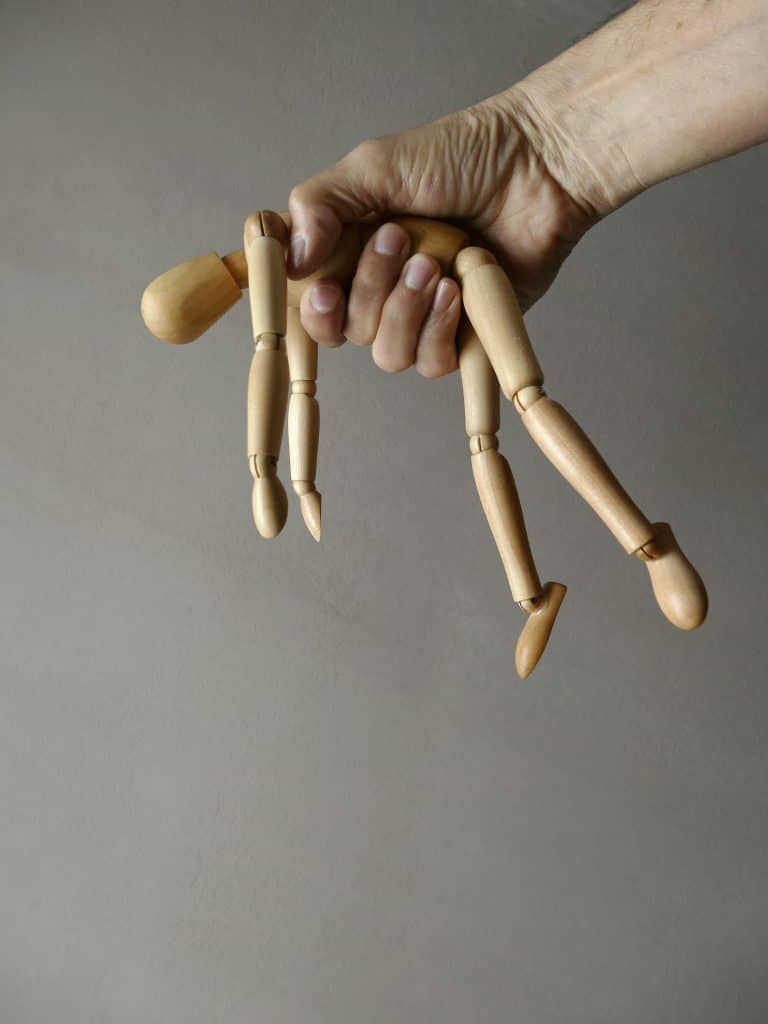Domestic abuse is not always physical. In many relationships, control, fear, and manipulation happen quietly behind closed doors leaving victims confused, isolated, and unsure how to get help. This form of abuse is known as coercive control, and it is recognised as a serious criminal offence under UK law.
At Maria Fogg Family Law, we help clients understand their rights and take safe, informed steps to regain their freedom and independence. Recognising coercive control is often the first step toward breaking free.

What Is Coercive Control?
Coercive control is a pattern of behaviour used to dominate or isolate another person. It’s about power not anger. The abuser uses various tactics to make the victim feel dependent, fearful, or incapable of making their own decisions.
The law defines coercive control as “a pattern of acts designed to make a person subordinate or dependent”, including isolation, exploitation, intimidation, and control over everyday life.
Common Signs of Coercive Control
Isolation:
Preventing you from seeing friends, family, or colleagues.
Monitoring:
Constantly checking your phone, emails, or social media.
Financial control:
Restricting your access to money or monitoring how every penny is spent.
Emotional manipulation:
Blaming you for their behaviour, using guilt, or twisting situations to make you doubt yourself.
Rules and criticism:
Dictating what you wear, eat, or do is often disguised as “caring”.
Threats and intimidation:
Making you feel unsafe, even without physical violence.
Gaslighting:
Making you question your memory, judgment, or sanity.
Many victims don’t realise they’re being abused because there may be no physical assault. Yet the impact can be just as devastating.
The Legal Protection Available
Since 2015, coercive or controlling behaviour in an intimate or family relationship has been a criminal offence in England and Wales. Victims can seek protection through:
- Non-Molestation Orders – preventing further harassment or abuse.
- Occupation Orders – removing the abuser from the family home.
- Police involvement – where coercive control can result in arrest and prosecution.
The court recognises coercive control as a form of domestic abuse, and it plays a key role in child arrangements and other family proceedings.
How Coercive Control Affects Children
Even if children are not directly abused, growing up in a home where one parent controls another can have lasting emotional and psychological effects. The family court treats exposure to such behaviour as a form of harm, and will always prioritise the child’s safety and wellbeing.
Taking the First Step Toward Freedom
If you suspect you are in a controlling relationship, it’s important to reach out safely. Speaking to a trusted friend, GP, or domestic abuse charity can help you begin planning your next step. A specialist family law solicitor can provide practical advice on legal protection, housing, and child arrangements, ensuring you and your children are safeguarded.
At Maria Fogg Family Law, we handle every case with sensitivity and discretion. You will never be judged, and your safety will always come first.
You Are Not Alone
Recognising coercive control can be painful, but it’s also empowering it means you see what’s happening and can begin to take back control.
If you think you may be experiencing coercive control or any form of domestic abuse, please contact Maria Fogg Family Law for confidential advice. We’ll help you understand your rights, plan your next steps safely, and connect you with additional support services that can guide you on your journey to freedom.
Frequently Asked Questions About Coercive Control
What is coercive control in a relationship?
Coercive control is a pattern of behaviour where one person seeks to dominate, isolate, or intimidate another. It’s about power — not anger. The abuser may control finances, restrict contact with friends and family, monitor communication, or use emotional manipulation to make the victim feel fearful or dependent. It often happens gradually and can be difficult to recognise at first.
Is coercive control a criminal offence in the UK?
Yes. Coercive or controlling behaviour became a criminal offence under the Serious Crime Act 2015. It applies to intimate or family relationships where the behaviour causes the victim to fear violence, or has a serious impact on their daily life. Offenders can face arrest, prosecution, and imprisonment.
What are some common examples of coercive control?
Examples include:
- Preventing you from seeing friends or family
- Monitoring your phone or social media
- Controlling your access to money
- Constant criticism or humiliation
- Using guilt, blame, or fear to control your decisions
- Threats, intimidation, or emotional manipulation
These behaviours often appear subtle at first but can escalate over time, making the victim feel trapped or powerless.
Can coercive control happen without physical violence?
Absolutely. Many victims of coercive control are never physically harmed. The abuse is psychological and emotional, but its effects can be just as damaging. Victims often experience anxiety, depression, and a loss of confidence due to prolonged manipulation and fear.
How can I tell if I’m in a coercive relationship?
If you constantly feel anxious about your partner’s reaction, have lost contact with friends or family, or feel you need permission to make basic decisions, you may be experiencing coercive control. Trust your instincts — if something feels wrong or unsafe, it probably is. Speaking confidentially to a solicitor or support charity can help you gain perspective and plan safely.
What legal protection is available for victims of coercive control?
Victims can apply for:
- Non-Molestation Orders, which stop the abuser from contacting or threatening you.
- Occupation Orders, which can remove the abuser from your home.
You can also report coercive control to the police. A conviction can lead to imprisonment and a criminal record. A family law solicitor can help you apply for protection and guide you through every step safely.
How does coercive control affect children?
Children who witness coercive control often experience fear, confusion, and emotional distress. Even if they are not directly harmed, they may suffer long-term psychological effects. The family court views exposure to coercive behaviour as a form of harm and will always prioritise a child’s safety and wellbeing in related cases.
What should I do if I think someone I know is being controlled?
If you suspect someone is being controlled or isolated, approach the situation gently. Let them know you are concerned and that help is available. Avoid confronting the abuser directly. Encourage the person to contact a domestic abuse charity, their GP, or a family law solicitor for confidential advice.
Can men experience coercive control too?
Yes. Coercive control can affect anyone — regardless of gender, age, or background. Men can also be victims of controlling or manipulative behaviour and are entitled to the same legal protection and support as women.
How can Maria Fogg Family Law help?
At Maria Fogg Family Law, we provide confidential, compassionate legal advice to anyone experiencing coercive control or domestic abuse. Our team can help you obtain protective court orders, secure safe housing, and make arrangements for your children. You’ll receive clear, practical guidance with your safety as our top priority.



